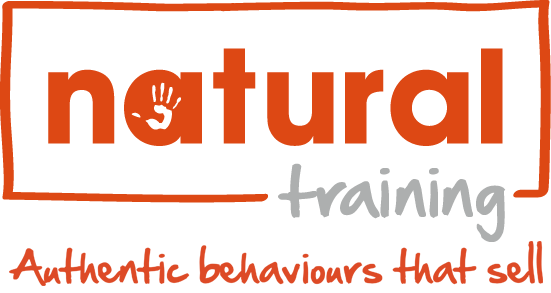How To Recruit Great Salespeople
Salespeople play a crucial role in your business performance. They are on the front-line with your customers. Battling objections and winning business, they’re the true cavaliers of your company.
In fact, to your customers, your salespeople ARE the company. They make the deals. They close the sales. Your best salespeople earn their money and then some.
Before you invest time and resources in on-boarding, training and developing your new salespeople to embed seamlessly, it might help to review the natural qualities to look out for at interview stage. Needless to say, applicants should come across authentic, bold and credible.

But, how do you know which additional traits or qualities to look out for when bringing in new sales people?
Here are six that have worked for me over the years:
1. ‘Self-employed’. Technically, salespeople are employees and fulfil a responsibility just like anyone else in your business. They are on the payroll. They have a contract. They have targets to reach.
However, the best salespeople I have known all believe they work for themselves. They are self-motivating, self-managing and most of all, consider themselves to be self-employed. They hold themselves – not the business – accountable at all times. And that’s a damn good personality to have in your business.
Tip: Be prepared to hire someone who thinks, acts and speaks like a manager and then hold them accountable for the results to which they agree.
2. They ‘own’ part of your business. You might be thinking, that the prospective salesperson across the interview table from you is merely a potential employee. Not so. The salesperson you need to hire should act and think like they actually ‘own’ a part of your business.
They may not be a shareholder or investor in practical or legal terms. But they’re willingly responsible for specific channels and key accounts, which ‘keep the lights on’. These kind of people bring a ton of passion to the sales floor.
Tip: Listen carefully to the interviewee’s language. ‘Employees’ want to know where the floor is. Great salespeople on the other hand want to know how high the ceiling can be.
3. A self-directing learner. Sure, your new salesperson may report to a Manager or Director. That might be what your particular organisation structure demands. But, the right sales person is self-managing, self-directing and should require comparatively little hands-on supervision.
The right salesperson’s individual sales performance is inextricably linked to her or his perception of themselves as a successful person. It’s what gets them out of bed in the morning and keeps them out there when others have called it a day.
Tip: How up to speed are they with regards to your business and your market?

4. Knowledge and insight. A sales candidate comes to the interview with more knowledge and insight than any other candidate. They understand your business and market challenges and trends. They know who you are, which role you play and what you like to share on LinkedIn and Twitter. These insights allow them to understand how they can make a difference, and how they should approach you as an interviewer.
It is reasonable to expect the right salesperson for your company to give you information, which is by all accounts hard to come by. On more than one occasion, I have caught myself smiling, when a promising candidate has revealed a tit-bit of news not yet in the public domain.
That said, even at interview stage you should expect them to be naturally curious and inquisitive. Great salespeople ask astute questions of the right people. It’s a talent like no other.
Tip: If managing rudimentary things such as punctuality and personal appearance are beyond your candidate’s abilities at the interview stage, it might be time to show them the door… before your prospects do.
5. A user. I know a guy who had a short-lived career as a salesperson for a NY-based clothing brand. On his days off he never wore their shirts or their trousers. He wore somebody else’s watches and used a rival’s eau-de-cologne. Wasn’t long before he bumped into a major buyer and her husband at a social event. And that was that. How come no one at HQ noticed first?
In ‘Confessions of an Advertising Man’, the late David Ogilvy pointed out, that he wore Van Heusen shirts exclusively, and that he drunk only Lipton Tea. These were after all two of his best clients. He wrote the copy for these great brands. How could he possibly wear or drink anything else?
How can you expect your prospective salesperson to competently and consistently sell your product if he or she is not a ‘dedicated user’ of their current employer’s product? It’s simple. You can’t.
Tip: Your prospective salesperson should have a ‘bucket-full’ of enthusiasm in addition to first-class, first-person, first-hand knowledge of their current employer’s product or service.
6. ‘Infectious’. ‘Enthusiasm is infectious’, goes the phrase. You need ‘infectious’ sales people. It stands to reason, that interview time is the very time to ‘check’ just how evangelical your prospective salesperson is about the product they hope to sell. More importantly, it’s the time to verify just how ‘polished’ and ‘infectious’ your aspiring salesperson is about the product they currently sell.
Bringing these people into your business is a great way to begin transforming your culture. Encouraging and rewarding these behaviours can be a catalyst for positive change.
Tip: Take a few hours to brush up on your candidate’s current employer and products. This usually surprises your interviewee and puts you in a strong position.

Can you expect the right salesperson to have researched all of this and more come interview time? Absolutely.
If you’re struggling to recruit great salespeople then get in touch with one of our Training Consultants and we’ll be happy to run a recruitment workshop for your managers. Alternatively, we can develop a sales induction programme to help your new recruits hit the ground running.
Got a comment?
Catch us on Social Media and join the discussion!


